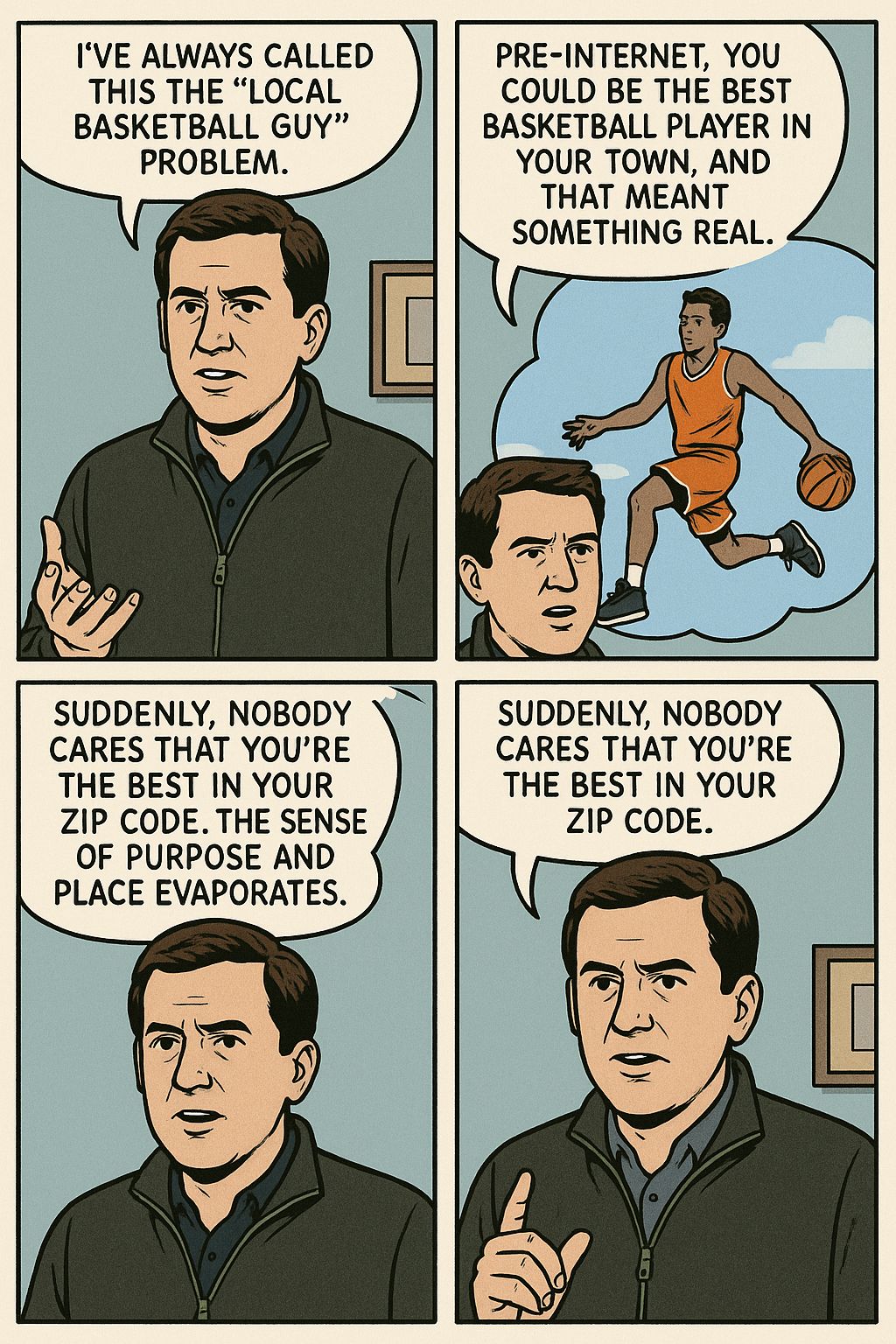Why Young Men Are Lost: The Real Inequality Crisis Isn’t Economic... It’s Social
Sam Lessin

Context:
I was at a small event this week and Scott Galloway said something that’s been rattling around in my head ever since. He talked about how the collapse of local communities—clubs, pickup leagues, even church groups—has created a massive problem, especially for young men: we’ve lost the venues to build and demonstrate competence and mastery.
I’ve always called this the “local basketball guy” problem. Pre-internet, you could be the best basketball player in your town, and that meant something real. You had status, identity, a place. Now, you open Instagram, see some 14-year-old windmilling from the free-throw line, and realize you’re not even close. Suddenly, nobody cares that you’re the best in your zip code. The sense of purpose and place evaporates.
Scott’s framing is even sharper: the collapse of local venues for mastery is a social earthquake. And we all know how this plays out online—young people, especially young men, go deep into video games or weird internet subcultures, or just get super depressed. They try to “right-size” their digital communities so they can feel like they matter somewhere, anywhere. But that’s a tough ask for local communities. If you can’t demonstrate mastery locally, you’re not showing it to the people you actually interact with—classmates, neighbors, potential partners. That has real-world consequences: it gets harder to feel good, get along, compromise, even date and build families.
Market Signal:
We talk a lot about economic inequality in tech—the power-law dynamics of wealth and opportunity. But I’m starting to think the real “sleeper” issue of this century is social power-law inequality: the way digital platforms flatten local status games and concentrate “winning” into the hands of a tiny few, leaving the rest with nowhere to climb, no way to matter.
Takeaways:
The internet has destroyed the “local hero” effect.
Young men, in particular, are adrift without venues for local status and mastery.
Online substitutes (video games, niche forums, etc.) don’t fill the gap for real-world relationships, self-worth, or community.
The downstream effects are profound: loneliness, polarization, social dysfunction, declining birthrates.
Social inequality (who gets to matter, who gets to feel competent) may outpace economic inequality as the defining problem of our age.
Asks:
If you’re building products or communities: how are you helping people find real, local venues for competence and connection?
What can we do to rebuild local “status games” that are accessible, meaningful, and rewarding?
